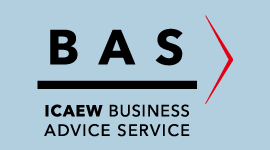Whether starting out or experiencing a high-growth phase, equity finance is a way to finance many different stages of the business journey.
Equity financing is the raising of capital through the sale of shares in a business. Equity can be sold to third-party investors with no existing stake in the business, or raised solely from existing shareholders, through something called a rights issue.
Some investors take a minority stake, while others are interested only in a majority stake. Whichever is the case in a specific scenario, investors’ interests are aligned with the business, meaning all are on board for the growth journey.
Early-stage equity finance
At an early stage, businesses will need long-term backing to fund the business through to revenue and profit. This could be through business angels and/or venture capital and is commonly in different rounds with different parties. In the shorter term, equity investment can support an aggressive growth strategy.
Blending different types of equity finance
A business may have many different types of equity finance. Founding shareholders will usually have put some initial equity into the business. Friends or family may also have invested in the early stage of the business journey. Business angels may then take an equity stake. Venture capital investors (also known as venture capitalists), corporate venture capitalists or private equity (PE) investors tend to be an option at the growth phase.
Financial institutions or the wider public may also invest in equity through a listing of the company’s shares. Equity crowdfunding platforms are another way in which the public may acquire equity stakes.
In reality, this is not simple – there are many equity finance options at each stage in your journey, especially when a business is doing well. Business angels, for instance, may invest at many stages in the business’s growth.
As it progresses, a company’s shareholder register will be a mix of investors who have taken stakes at different stages of its journey.
What shareholders may expect in return
Unlike debt providers or lenders (see debt finance), equity investors do not have rights to interest, or to have their capital repaid by a certain date.
Shareholders’ return is usually paid in dividends or realised through capital growth. Both are dependent on the business’s growth in profitability, and its ability to generate cash. Because of the risk to their returns, equity investors will expect a higher return than debt providers.
Where a project requires longer-term investment than conventional debt offers, equity will be the most suitable form of finance.
There is also a hybrid of debt and equity finance – mezzanine. Mezzanine and growth capital loans are covered under growth finance.
Next steps
- Find out more about the advantages of different types of equity finance.
- The interactive tool will show you what equity and debt options may be available to a business like yours.
Finance at every stage
Business financing is not a one-off decision, but an ongoing and evolving situation. No decision can be made in isolation to the businesses journey. Find out more about what options are suitable now and what might work at another stage.

More support to your inbox
ICAEW publishes daily, weekly and monthly emails offering viewpoints, interviews and features that make the connection between global economic issues, chartered accountancy, individual members and business.
Understand your options
Find out more about the different finance options available at different stages of your business journey.
Equity finance optionsDebt finance options

